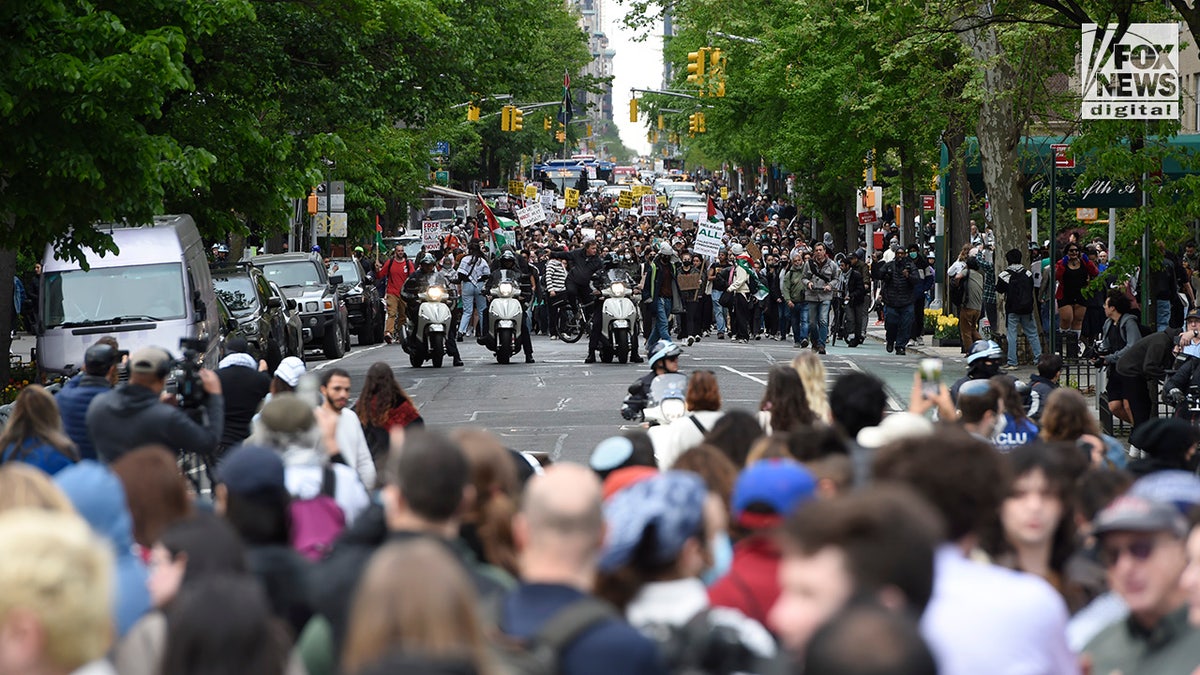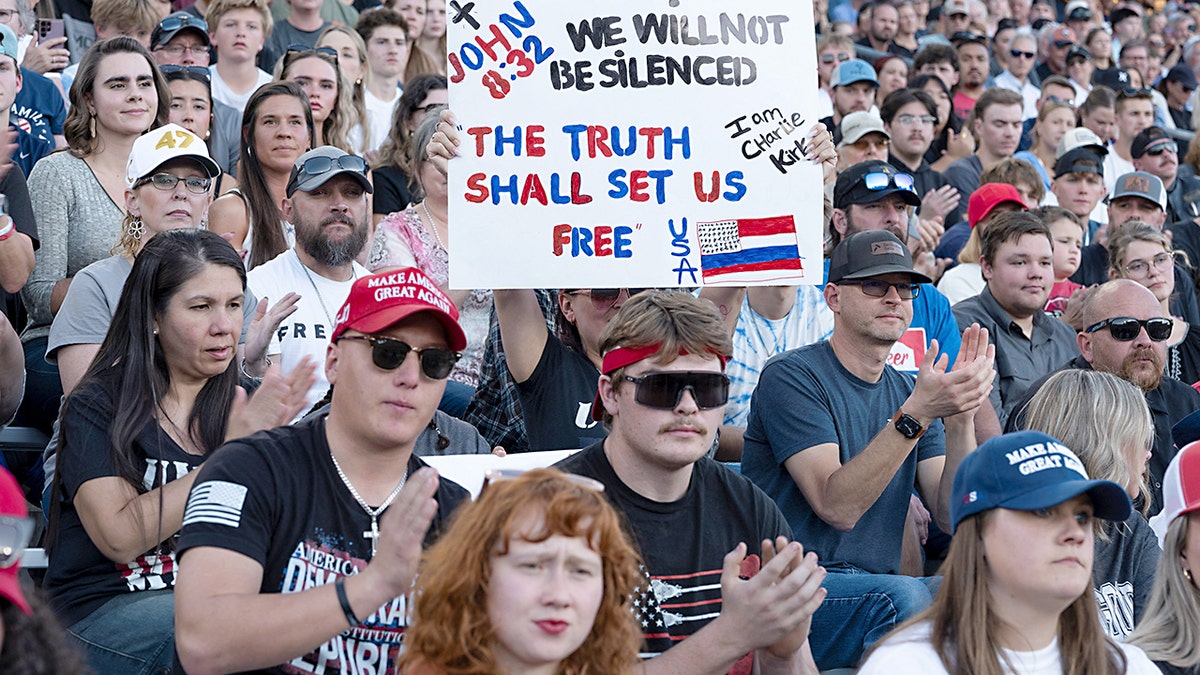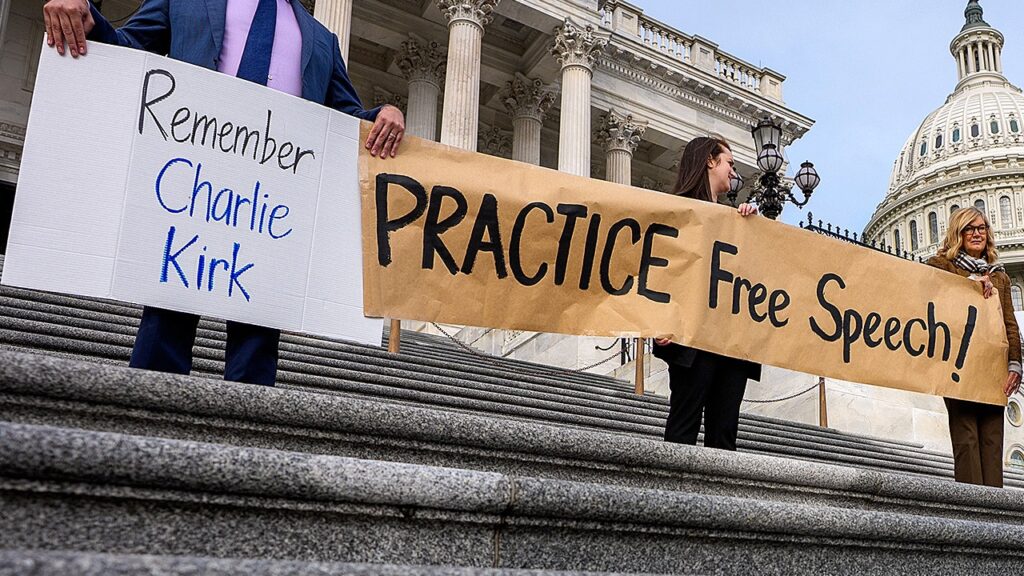NEWYou can now listen to Fox News articles!
The Federalist Society’s National Lawyers Convention kicks off this week in Washington, D.C., where this year’s theme, “New Frontiers,” espouses everything from technological advances and the rise of AI to young people at the forefront of the conservative legal movement — hoping to underscore the importance of open debate, free speech and earnest engagement across the political aisle.
The event will spotlight law students from universities across the country, who are standing up for free speech and viewpoint diversity amid what they say is a rise in “cancel culture,” censorship issues and incidents of campus unrest that have prompted a crackdown on event speakers, or led to ostracization by peers or professors.
The students, who head up their local Federalist Society chapters at law schools across the U.S., face very different obstacles in advocating for free speech and open debate, though some more subtle than others.
As the next generation of lawyers prepares to join hundreds of fellow law students, future peers and judges in D.C. for Thursday’s conference, each told Fox News Digital that they see the same challenge ahead for young conservatives: not just defending free speech, but redefining it — in an academic environment they say too often punishes dissent instead of encouraging open discussion.
CONTINUED COURT FIGHTS COULD PUT HARVARD IN UNWINNABLE POSITION VS TRUMP
Each of the students cited different attempts to intimidate speech or detract from attempts to engage with others in good faith that they’ve encountered — part of a broader pattern playing out at campuses nationwide.
Last month, administrators for New York University Law School canceled a pro-Israel legal scholar, Ilya Shapiro, from speaking at an event hosted by the Federalist Society chapter on Oct. 7.
Administrators had originally suggested that the group postpone the event date, citing concerns of protest and anticipated unrest. The students resisted and insisted on keeping the date, saying instead that relocating or postponing would amount to “giving in to the heckler’s veto.”
Public backlash ensued, and eventually administrators agreed to allow Shapiro to speak at the event as planned.
The unrest has only intensified in recent years, and the students cited instances of attempts to intimidate them or ostracize members, ranging from the subtle to overt.
At the University of Michigan, students gathered outside a Federalist Society event “taking notes of who was coming and going,” said Matthew Holmes, president of the chapter at the University of Michigan School of Law.
‘UNPRECEDENTED’ ANTISEMITISM PANEL TACKLES SURGING NATIONAL ISSUE

“There are groups that tell their members, ‘If you go there, you’re not welcome at ours,'” he added.
Other incidents have targeted Jewish speakers and conservative viewpoints, prompting some to call it a growing culture of intolerance.
“We’re entering a new legal frontier,” said Jordan Lamb, a law student at the University of Texas at Austin, in a nod to this year’s convention theme.
“From AI to the courts, everything’s changing,” said Lamb, who heads up the university’s Federalist Society chapter. “But if people stop talking to each other, that’s when violence starts. We can’t let that happen.”
David Haungs, who leads the Federalist Society chapter at Yale, echoed much of the same. Each of the law students separately spoke about the impact of the assassination of Charlie Kirk, who was killed while speaking onstage at a university in Utah. His death sent shockwaves across the U.S., and especially on college campuses nationwide, where administrators and students alike cited increased fears of an uptick in violence.
Federalist Society presidents and other young conservatives interviewed after Kirk’s death cited concerns for their own safety and fears of a broader chilling effect if they avoid hosting controversial speakers or events that invite spirited debate.
NYU BLOCKS OCT. 7 CAMPUS TALK BY JEWISH CONSERVATIVE, CITING SECURITY CONCERNS

“I think that’s something that struck us all deeply,” Haungs said of Kirk’s death, and the environment on campus. “The threat of political violence — especially against conservatives in law school, and college campuses — it’s something that’s very troubling to have in the back of your mind.”
But, he added, those fears were quickly put to rest by an event that the Yale Federalist Society chapter hosted just one day later, focused on the contentious topic of birthright citizenship. “It was one of our most controversial events of the semester,” Haungs said. “I was worried. I asked for more security, but things went well, and we actually had the highest attendance we’ve had in years.”
“There’s this sentiment that attendance equals endorsement,” said Holmes.
He said of Kirk, “I think one of his best quotes is, ‘When people stop talking, that’s when violence starts.’ And I see a lot of people that are just unwilling to engage, that they don’t even see the opposition’s ideas of worthy of legitimacy, worthy of acknowledgment.”
At the end of the day, Holmes said, “This idea that I can’t even talk to you because your ideas are so repulsive — that just can’t last if we’re going to have a democratic republic.”
“I think other FedSoc presidents are reporting similar things happening, as people are realizing the importance of channeling our disagreements — into debates, into events, into speech — as opposed to violence.”
To be sure, students say these efforts still have a ways to go.
But they struck an optimistic tone about the future. Lamb noted her dean’s leadership and Texas’ political climate, while Holmes pointed to new civil discourse funding at the University of Michigan aimed at bringing students from across the ideological spectrum together for structured, earnest dialogue.

“[What’s] so unique about the Federalist Society and its community is that people aren’t cynical toward looking toward the future,” Lamb said. “They’re energized. And in a world that so often tells young people to find something to be outraged about, it’s really refreshing to be around folks and students, attorneys, who are genuinely eager to think deeply about where the law is going and where we should go next.”
“Just this last week, we brought the attorney general of Tennessee, Jonathan Skrmetti, who had just won a landmark Supreme Court case regarding gender transition surgeries and chemicals for children,” Haungs said.
“People hung up posters, brought them to events, saying Fed Soc invites child killers, and you know, people are well within their rights to express that disagreement — but that kind of irresponsible rhetoric is the sort of thing that raises the temperature in the national political sphere,” he continued.
“And I think we’re all too well aware of the consequences that can follow. How I’d prefer people to express their disagreement is simple,” Haungs said. “Come, show up to the event and ask hard questions.”
That was echoed by all of the students, who will each be participating in this year’s conference in public-facing ways.
The Federalist Society’s student division and rotating student chapter president will host a live event at this year’s conference where they interview judges about a passion, hobby or interest — and its relation to the law. Holmes and Caroline Martin, the head of the Federalist Society’s chapter at the University of North Carolina School of Law, will host this year’s sit-downs.
The hope, organizers said, is to help personalize judges beyond their day jobs, and drive home the fact that they are people, underneath the strict courtroom procedures and heavy black robes.
“Come to the events, have your ideas challenged,” Holmes said of the Federalist Society chapters nationwide. “Feel free to push back. We really, really want to scrutinize ideas. Because when we do that, that’s when we draw the best conclusions.”
Read the full article here




